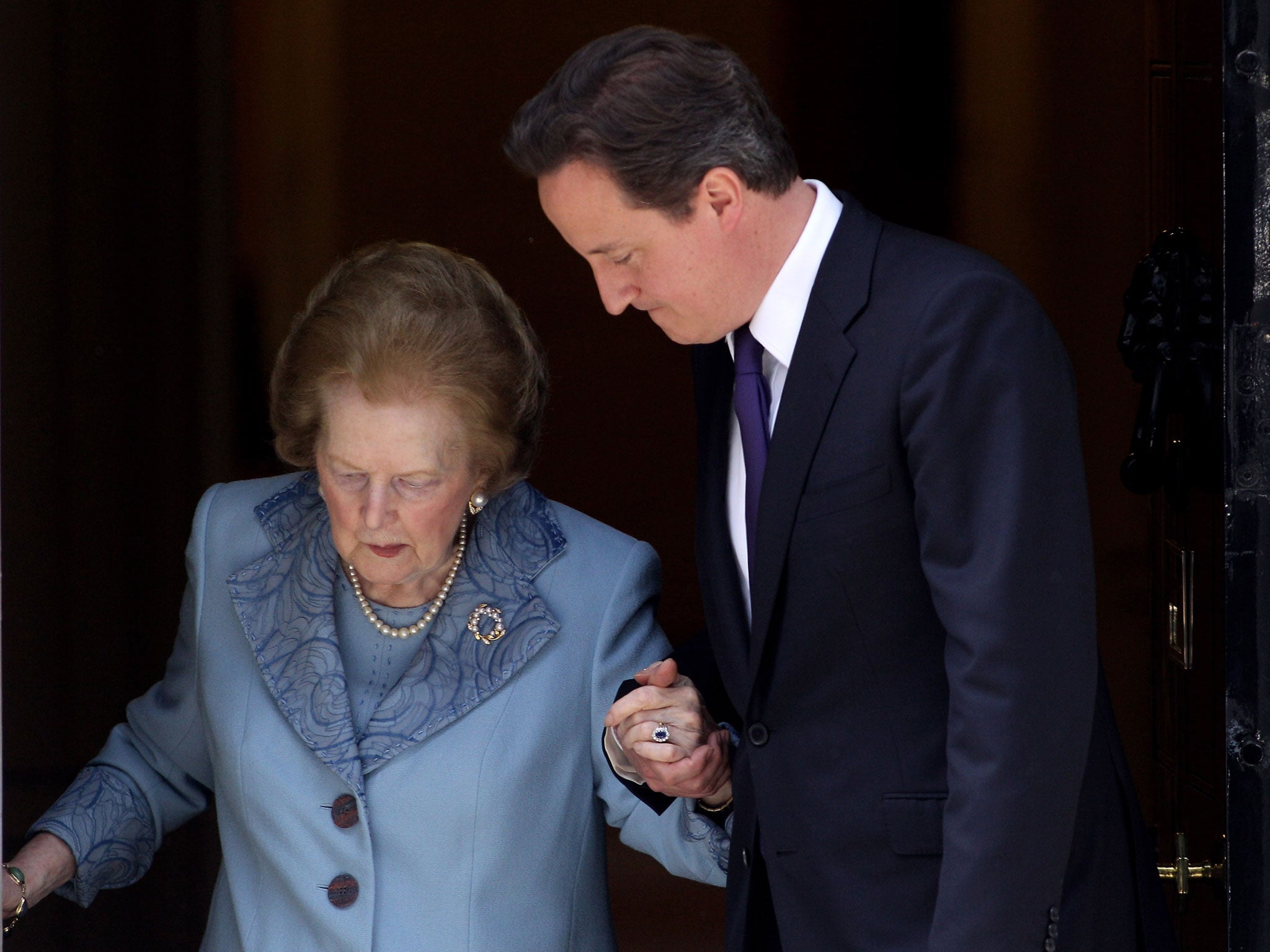The callousness of today's politics is Margaret Thatcher's true legacy
History may conclude otherwise, but today no political legacy looks a sadder victim of the law of unintended consequences than Margaret Thatcher’s


It is almost 10 years since she cranked out a rare jest, telling delegates to the 2003 Tory conference that they must have been expecting her because on her way she passed a cinema billboard proclaiming The Mummy Returns. But of course she never went away, not for an instant, and she never will. Death may have freed her from the sort of mental incapacity and physical frailty for which it is hard to imagine her having much sympathy. She was not only mummy to us – who denies the cliché that we are all Thatcher’s Children now? – but to the sink-or-swim social Darwinism which, with dread, we watch her successors enacting.
Yet death will not and cannot remove her shadow. Indeed, in the short term at least, it can only lengthen. On the defining debate of this parliament, her offspring all over the Commons – some filial and adoring, others sullen and recalcitrant – will now find themselves pincered between the unlikely East Midlands alliance of Derby’s Mick Philpott and Lincolnshire’s Margaret Thatcher. The crass and nasty interpretation of Philpott’s crime as proof of welfare’s intrinsic evil is lifted straight from her Manichean hymn sheet.
Her front bench offspring, all looking tinier than ever in her posthumous fairground mirror, will deal with the eruption of eulogistic reverence in different ways. David Cameron will cash in by invoking her deified ghost to bolster mass support for the them-and-us, different-species approach to the deprived that represented a flank in her destructive war against the post-war consensus. Spooked by the inevitable post-funeral Tory poll bounce, Nick Clegg will rhetorically edge closer to his Coalition partner. Ed Miliband will understand even more clearly that welfare is a debate he cannot possibly win, and keep his trap even more firmly shut than before. None believes that starving less wealthy victims of disability than herself of dignity and care is anything other than an abhorrence. None, unlike her, will have the courage to fight for what they do believe.
That this magnificent titan bequeathed generation after generation of political pygmies is one of various ironies that result from her astounding career. Prometheus in an M&S suit, she wanted to put fire in their bellies. All her flame did was scorch and shrivel them, even (if we must be wildly pretentious) cauterise their political souls. They shiver tremulously in her shadow today, the lot of them, as Major, Blair and Brown did before.
Most of us will have a complex amalgam of feelings about her, mine straddling awed respect for her immensity and sadness at the lack of imagination that deprived her of empathy for those less able to look after themselves. But wading through this quagmire of reflection, four parts treacly adoration to one part stinking mud, this much seems plain. History may conclude otherwise, but today no political legacy looks a sadder victim of the law of unintended consequences than Margaret Thatcher’s. Almost everything she strove to achieve, with bravery, bravado and a deal of braggadocio, appears to have had precisely the opposite outcome to the one she envisaged.
There has never been a more powerful paradigm of social mobility than her – she was raised above a corner shop in Grantham and died in a suite at the Ritz. There is less social mobility now, as a glance at those front benches reminds, than in living memory. Not since Clement Attlee has birth been so limiting.
She liberalised high finance and the mortgage market in the conviction that this was the twin-track superhighway to prosperity. Casino banking and the US sub-prime market caused the seismic convulsions that all but swallowed up the global economy, and left us virtually bankrupt. She proselytised the free market as a thing of perfect virtue, and one result was a memorable 2011 column by her friend and soon-to-be-biographer Charles Moore wondering whether the left was right about unfettered capitalism all along.
A passionate defender of the Union, her use of Scotland as pit canary for her least popular policies made the Conservatives so hated there that devolution became inevitable and independence imaginable (if unlikely). She played her part in engineering the collapse of the Soviet Union, partly on moral grounds, but partly convinced that this would lead to peace, wealth and the entrenchment of American hegemony. The loss of that uneasy geopolitical balance between the superpowers led to Osama bin Laden, Afghanistan and Iraq, and brought the American empire to its knees.
Not being a soothsayer, she can hardly be blamed for any of that, as she can for using simplistic, bellicose language and strident certainties to desensitise a population to the suffering of others, and make the callousness of her successors almost a perverted badge of honour.
Her convictions were as honestly held then as they will be cynically pastiched now for the kind of short-term tactical advantage that bedevils what, given her lingering dominance, one can hardly call the post-Thatcher era. No one can deny her sincerity or her greatness any more than her titanic stature. But where Prometheus counselled against unleashing the contents of Pandora’s box, she gleefully opened the handbag. As with the earlier revolution in France, it won’t be possible to tell the ultimate results of hers for a very long time. Today, however, a root around inside that bag for what remains turns up very little hope.

Join our commenting forum
Join thought-provoking conversations, follow other Independent readers and see their replies